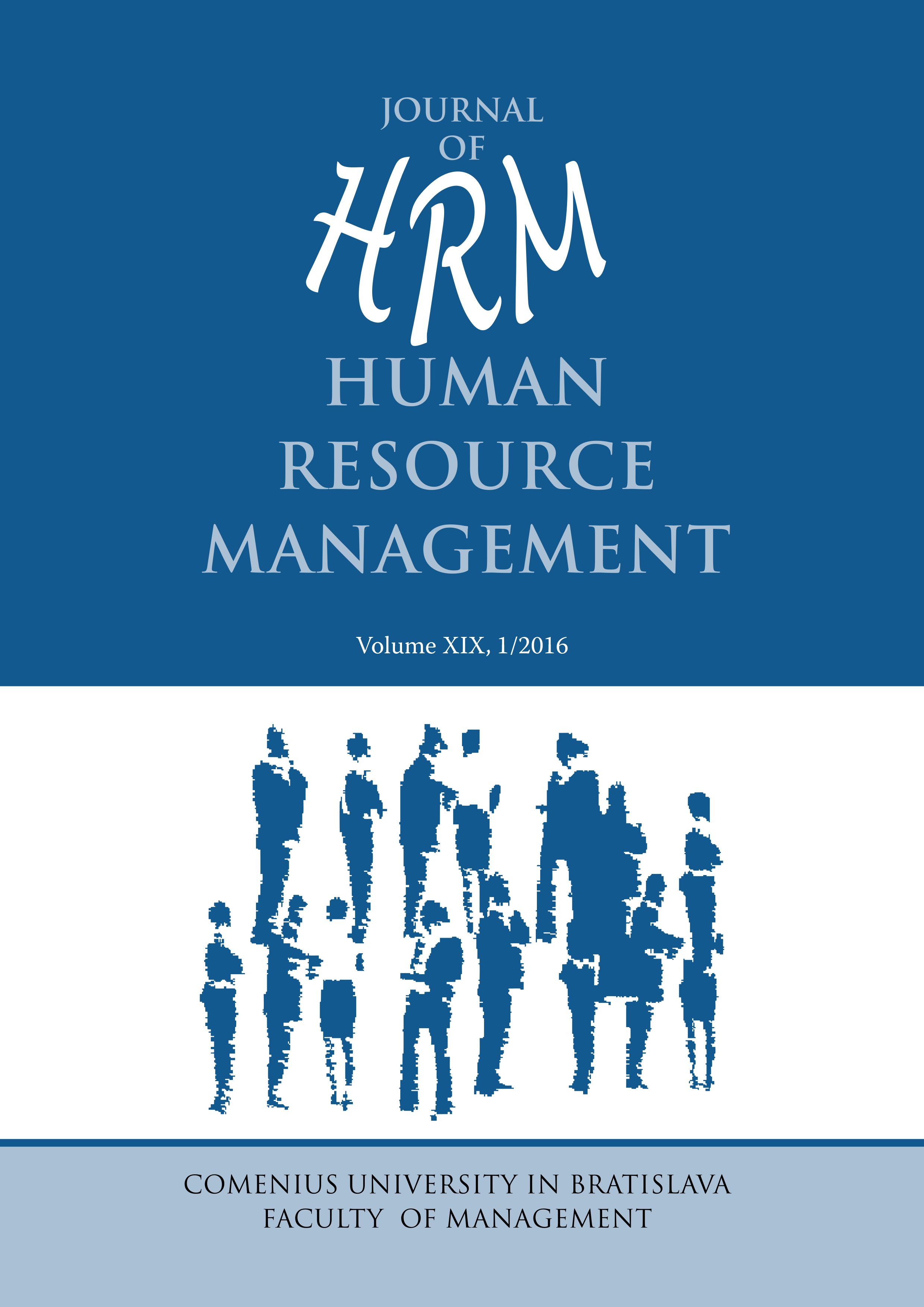THE EFFECT OF HIGH PERFORMANCE WORK SYSTEMS UTILIZATION ON FIRM PERFORMANCE: DOES HUMAN RESOURCE ATTRIBUTION OF EMPLOYEES MATTER?
THE EFFECT OF HIGH PERFORMANCE WORK SYSTEMS UTILIZATION ON FIRM PERFORMANCE: DOES HUMAN RESOURCE ATTRIBUTION OF EMPLOYEES MATTER?
Author(s): Shibiru Ayalew MelesseSubject(s): Business Economy / Management, Human Resources in Economy
Published by: Fakulta managementu Univerzity Komenského v Bratislave
Keywords: HPWS; HRM; performance; HR attribution;
Summary/Abstract: A large body of research suggests that high performance work systems (HPWSs) that enhance employees’ competencies, and motivate them, leads to competitive advantage. HPWPs are radically not ‘new practices’; they have been around for many years and have already been adopted by various organizations. However, the link between HPWS adoption & firm performance is yet blurred. The aim of this paper was to examine the moderating role of employees’ HR attributions on the relationship between adoption of HPWSs and firm performance. The current paper argues that human resource (HR) attribution of employees moderates the relationship between HPWS and firm performance such that the effective adoption of high performance work systems in an organization partly depends on the type of employees’ attributions (commitment versus control) of HR practices in the company. More specifically, it is proposed that adoption of HPWS can be more effective in organizations where employees’ attributions of HR practices is commitment focus than in firms where employees’ attributions of HR practice is control focus. The study contributes to understanding the ‘black box’ of HRM-performance link. Theoretical and practical implications and future research directions are discussed.
Journal: Journal of Human Resource Management
- Issue Year: 19/2016
- Issue No: 2
- Page Range: 63-74
- Page Count: 12
- Language: English

